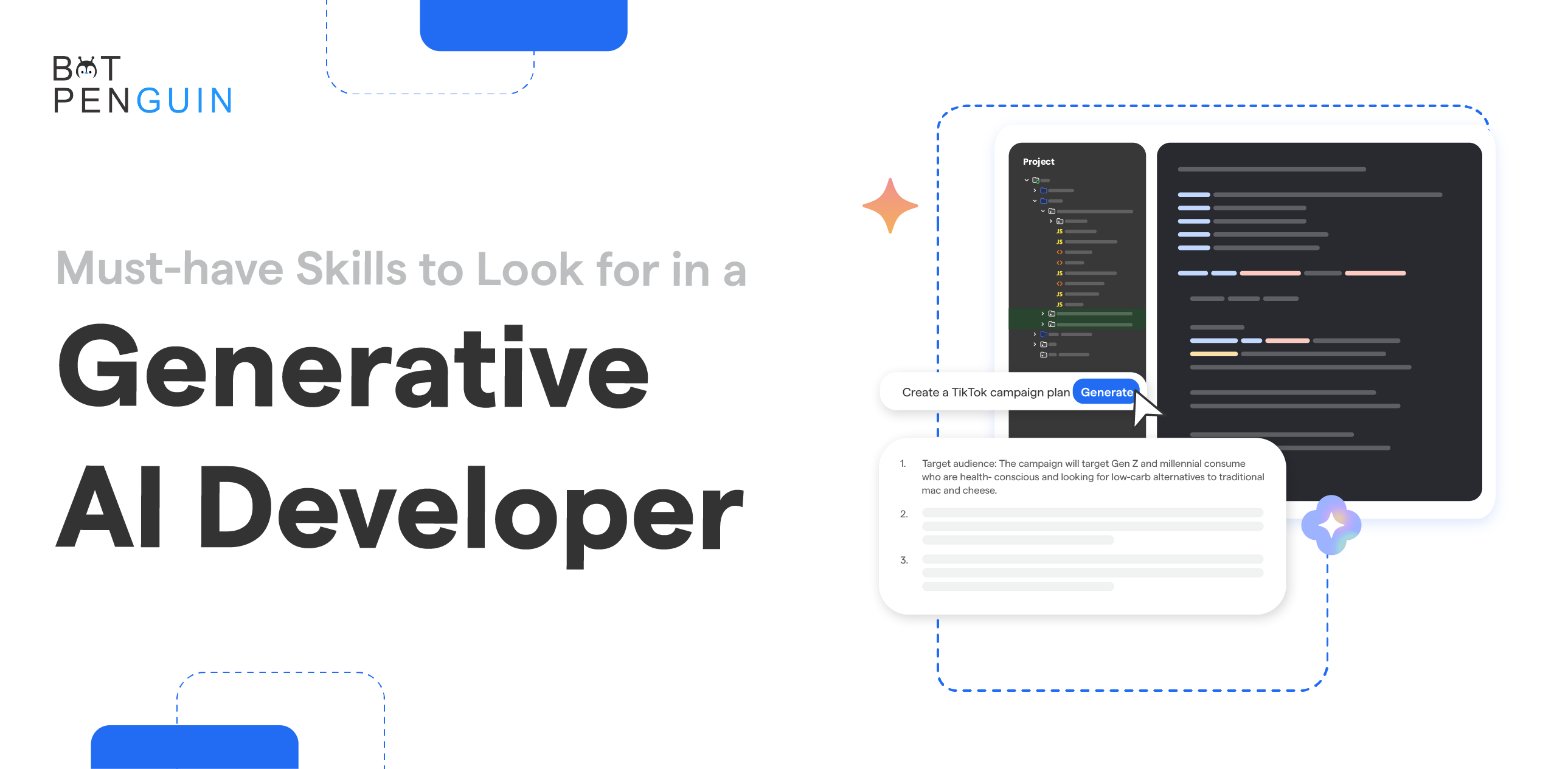Introduction
Generative AI is reshaping countless industries, yet finding developers with the right skills is tough. If you're hiring for generative AI, prioritize these five essential abilities.
Deep learning expertise tops the list. Your ideal candidate lives and breathes neural architectures like CNNs, GANs, and transformers. They should deeply understand training algorithms and optimization methods too.
Data prowess is key. Seek developers adept at data acquisition, cleaning, preprocessing, and augmentation - critical for ensuring high-quality training data.
Stellar programming skills are non-negotiable. Prioritize Python fluency, clean coding practices, collaborative workflow experience like version control.
Model evaluation mastery is a must. Your Generative AI developer should select relevant metrics, analyze outputs, and drive continuous performance improvements.
Finally, value creative problem-solving. The best apply out-of-the-box thinking, identify innovative solutions, and boldly explore uncharted generative AI territories.
With these five skills, you'll unlock cutting-edge generative AI capabilities. Read on to learn the specifics.
Deep Learning Expertise
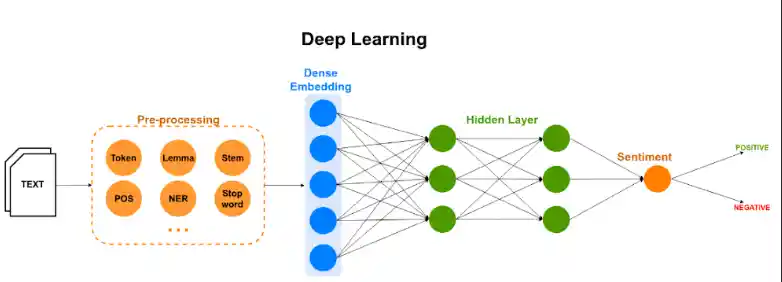
Generative AI models rely heavily on deep learning techniques, which are at the core of this transformative technology.
Your ideal candidate should have a strong understanding of the foundational concepts and architectures that underpin generative models.
Mastering the Foundations
Any generative AI developer must have a solid grounding in deep learning fundamentals.
They should deeply understand neural network architectures, training algorithms, and optimization techniques. This theoretical knowledge forms the bedrock upon which practical skills are built.
Your Generative AI developer should be well-versed in convolutional neural networks (CNNs), commonly used for image and video generation tasks.
They should also have a firm grasp of generative adversarial networks (GANs), a powerful architecture that pits two neural networks against each other, enabling the generation of highly realistic synthetic data.
Additionally, experience with transformer models, such as the groundbreaking GPT (Generative Pre-trained Transformer), is invaluable.
These models have revolutionized natural language processing, driving advancements in text generation, code generation, and more.
Staying Ahead of the Curve
Deep learning is rapidly evolving, with new techniques and architectures emerging regularly.
A top-notch Generative AI developer should be committed to continuous learning, staying abreast of the latest developments and actively experimenting with cutting-edge methods.
They should be familiar with the latest advancements in areas like diffusion models, which have shown remarkable progress in image and audio generation, and reinforcement learning, which is being applied to generative tasks with promising results.
Your developer should also have experience with popular deep learning frameworks like TensorFlow or PyTorch, which provide powerful tools and libraries for building and training generative models.
Generative AI Programming Prowess
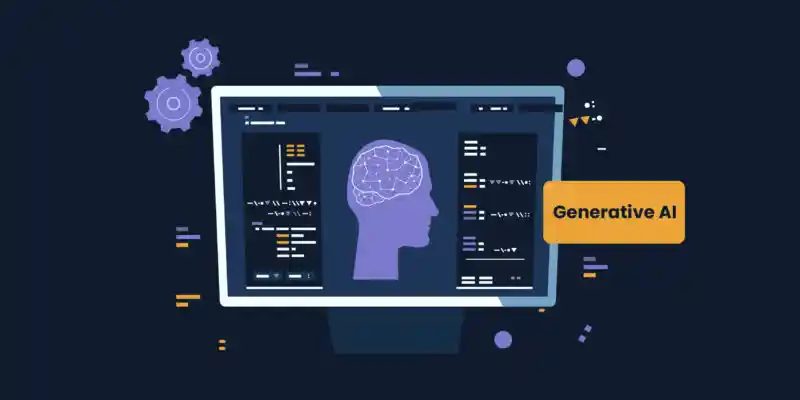
Generative AI development is a highly technical field that requires exceptional programming skills.
Your Generative AI developer should be fluent in programming languages like Python, widely used in the data science and machine learning communities.
Coding Craftsmanship
Clean, efficient, and maintainable code is paramount in Generative AI development. Your ideal candidate should possess a strong grasp of software engineering principles, including modular design, code organization, and debugging techniques.
They should be skilled in writing well-documented, readable code that adheres to best practices and coding standards. This is crucial for maintaining and scaling your generative models and enabling collaboration within your development team.
Furthermore, your Generative AI developer should have experience handling large datasets, manipulating complex data structures, and optimizing code for performance.
Generative AI models often require significant computational resources, and efficient code can significantly improve training times and overall performance.
Suggested Reading:
How Generative AI Developers Can Transform Your Business
Collaborative Coding
Generative AI projects often involve collaboration among multiple developers and stakeholders. Look for candidates adept at working in team environments, engaging in code reviews, and effectively communicating technical concepts to non-technical stakeholders.
Your Generative AI developer should be proficient in using version control systems like Git, which are essential for managing code changes, enabling collaborative development, and tracking project histories.
Experience with agile development methodologies and tools for project management and task tracking can also be valuable assets.
Data Life-Cycle Management
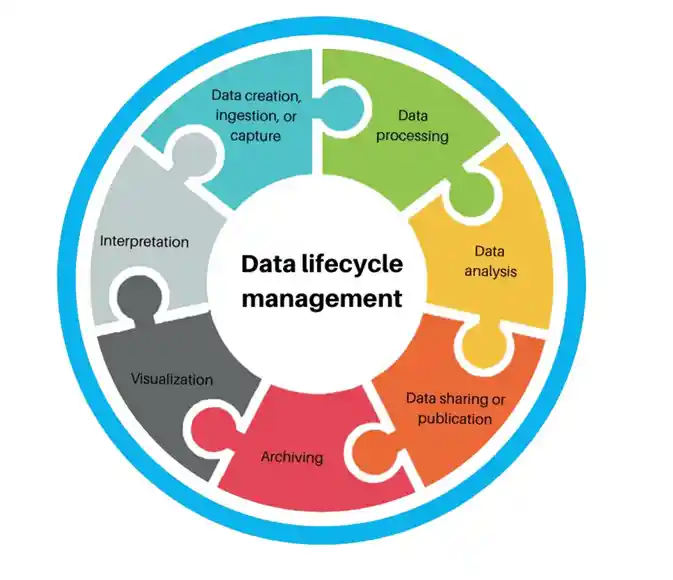
Generative models are data-hungry beasts, requiring vast amounts of high-quality training data to produce accurate and realistic outputs.
Your Generative AI developer should possess a strong foundation in data science concepts and be skilled in handling data at every stage of the generative model lifecycle.
Understanding the Data Lifecycle
Successful Generative AI projects hinge on high-quality data. Your Generative AI developer should understand the entire data lifecycle, from data acquisition and cleaning to preprocessing and augmentation techniques.
They should be adept at sourcing and collecting relevant data, whether it's images, text, audio, or other formats. This may involve web scraping, leveraging APIs, or working with proprietary datasets.
Data cleaning and preprocessing are crucial steps in preparing data for generative model training.
Your Generative AI developer should be skilled in handling missing data, removing outliers, and applying techniques like normalization and standardization to ensure data quality and consistency.
Additionally, they should be familiar with data augmentation strategies, such as cropping, flipping, or adding noise to images, or using techniques like back-translation or text manipulation for natural language data. These techniques can significantly increase the diversity and robustness of your training data.
Leveraging Cloud Technologies

With the ever-increasing size of datasets, your developer must be adept at leveraging cloud technologies for data storage, processing, and model training. Familiarity with AWS, GCP, or Azure is a significant advantage.
Cloud platforms offer scalable storage solutions, such as object storage or data lakes, which can securely store and manage large volumes of data.
They also provide powerful compute resources, like GPU-accelerated instances, essential for training resource-intensive generative models.
Your Generative AI developer should be skilled in deploying and managing cloud infrastructure and leveraging distributed computing frameworks like Apache Spark or Dask for efficient data processing and parallelization.
Evaluation and Analysis Ace
Building a generative model is just half the battle. The other half lies in evaluating its effectiveness and ensuring that it meets the desired objectives.
Your ideal candidate should be skilled in using appropriate metrics and techniques to assess model performance, analyze outputs, and identify areas for improvement.
Measuring Model Performance
Generative AI models often have unique evaluation criteria, such as visual quality, diversity, and coherence. Your developer should be well-versed in selecting and applying the appropriate evaluation metrics for your use case.
For image and video generation tasks, metrics like Inception Score, Fréchet Inception Distance (FID), and Kernel Inception Distance (KID) are commonly used to measure the quality and diversity of generated outputs.
In natural language generation, metrics like BLEU, METEOR, and perplexity are employed to assess the fluency, coherence, and relevance of generated text.
Your Generative AI developer should also be familiar with techniques like human evaluation studies, which can provide valuable subjective feedback on the quality and realism of generated outputs.
And finding a generative AI developer for your business need not be that tough. Meet BotPenguin, the home of AI-driven chatbot solutions
BotPenguin houses experienced developers with 5+ years of expertise who know their way around NLP and LLM bot development in different frameworks.
And that's not it! They can assist you in implementing the large language model into your chatbot to enhance its language understanding and generative capabilities, depending on your business needs.
- Whitelabel ChatGPT
- Hire ChatGPT Developers
- Custom ChatGPT Plugins
- Hire Chatbot Developers
- Custom Chatbot Development
- ChatGPT Clone
- ChatGPT Consultant
Continuous Improvement
Model development is an iterative process. A skilled Generative AI developer should be adept at analyzing model outputs, identifying weaknesses, and implementing strategies for continuous improvement.
This may involve fine-tuning model architectures, adjusting hyperparameters, or experimenting with different optimization techniques to improve performance.
It could also involve data augmentation strategies, such as generating synthetic data to enhance the diversity and robustness of the training dataset.
Additionally, your Generative AI developer should be skilled in identifying and mitigating potential biases or ethical concerns in the generated outputs.
This might involve techniques like adversarial training, where a discriminator network is used to identify and remove unwanted biases or undesirable characteristics from the generated data.
Creative Problem-Solving
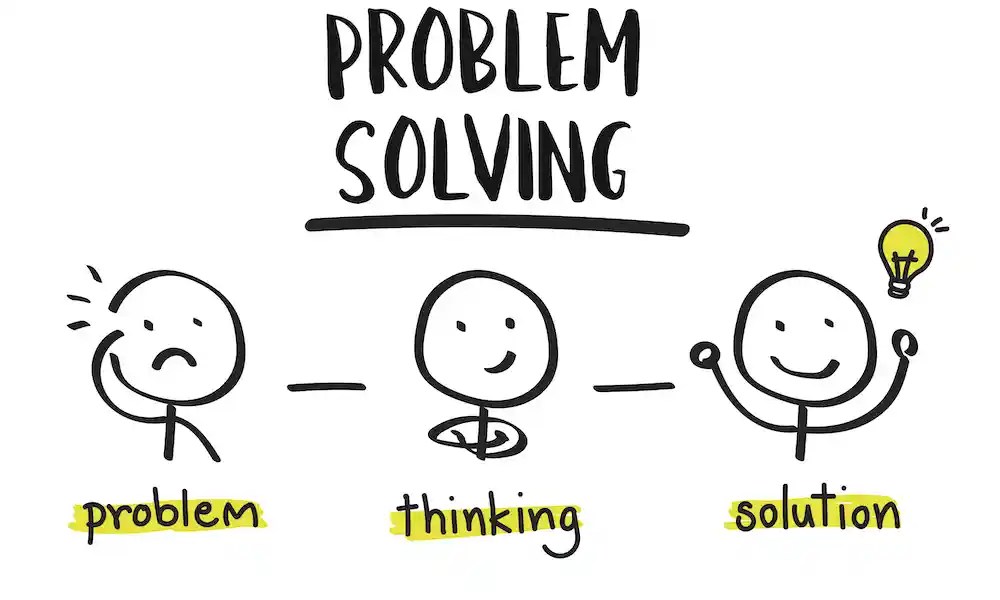
Generative AI often requires unconventional approaches to tackle complex problems.
Your ideal candidate should possess a creative mindset, able to identify novel solutions and think beyond traditional methods.
They should be adept at breaking down complex challenges into smaller, more manageable components and devising innovative strategies to address each aspect.
This might involve combining different generative model architectures, exploring multi-modal approaches, or integrating generative models with other AI techniques like reinforcement learning or reasoning systems.
For example, a creative developer might tackle the problem of generating high-quality, coherent long-form text by combining a language model with a knowledge base and incorporating techniques from commonsense reasoning to improve context understanding and logical flow.
In image generation, they might explore hybrid models that fuse GANs with diffusion models or autoregressive models to leverage the strengths of each approach and produce more realistic, diverse outputs.
Your Generative AI developer should also be skilled in identifying and leveraging emerging research and trends in the field, staying ahead of the curve and exploring new frontiers in Generative AI.
This could involve experimenting with cutting-edge techniques like gradient-based meta-learning or energy-based models to push the possible boundaries.
Suggested Reading:
Hiring Dedicated Generative AI Developers: Top 10 Benefits
Embracing Experimentation
Generative AI is constantly evolving, with new techniques and approaches emerging regularly. Your developer should embrace experimentation, be willing to take calculated risks, and have the courage to explore uncharted territories.
They should be open to trying out novel ideas, even if they may seem unconventional or risky at first. This mindset fosters innovation and can lead to groundbreaking discoveries or applications of Generative AI.
For instance, a developer might experiment with using generative models in unexpected domains, such as generating synthetic data for cybersecurity applications, creating realistic simulations for training autonomous vehicles, or generating personalized content for healthcare or education.
Encouraging a culture of experimentation within your development team can also be beneficial. This might involve setting aside dedicated time and resources for exploratory projects, fostering collaboration and knowledge-sharing among team members, and providing a safe environment for responsible risk-taking.
Conclusion
Finding skilled Generative AI developers is crucial. By prioritizing deep learning expertise, data wizardry, programming prowess, evaluation mastery, and creative problem-solving, you'll assemble a top-notch team capable of pushing boundaries.
But building a generative model is just the start. You need a reliable partner to handle queries, provide support, and drive engagement. That's where BotPenguin comes in. Our cutting-edge chatbot service offers human-like conversations, seamless integrations, and scalable solutions.
With BotPenguin, you can enhance your Generative AI offerings with natural language interactions, personalized recommendations, and real-time assistance.
Elevate your user experience and stay ahead of the curve. Get started with BotPenguin today and unlock the full potential of your Generative AI investments.
Suggested Reading:
Generative AI Development: 101 Understanding the Basics
Frequently Asked Questions (FAQs)
What are the essential programming skills to look for in a generative AI developer?
Look for expertise in languages like Python, TensorFlow, and PyTorch. Knowledge of data structures, algorithms, and software development principles is critical.
Is experience with deep learning frameworks necessary for a generative AI developer?
Yes, experience with frameworks like TensorFlow, PyTorch, or Keras is crucial—deep learning algorithms power generative AI models.
What kind of mathematical background should a generative AI developer possess?
Proficiency in linear algebra, calculus, and probability theory is essential for understanding the mathematical foundations of generative AI algorithms.
Is knowledge of natural language processing (NLP) necessary for a generative AI developer?
NLP knowledge is essential for developing AI models that generate human-like text. Understanding concepts like language models and text generation techniques is crucial.
How important is creativity in a generative AI developer?
Creativity is vital! Generative AI developers must think outside the box to design innovative models and generate unique and engaging content.

